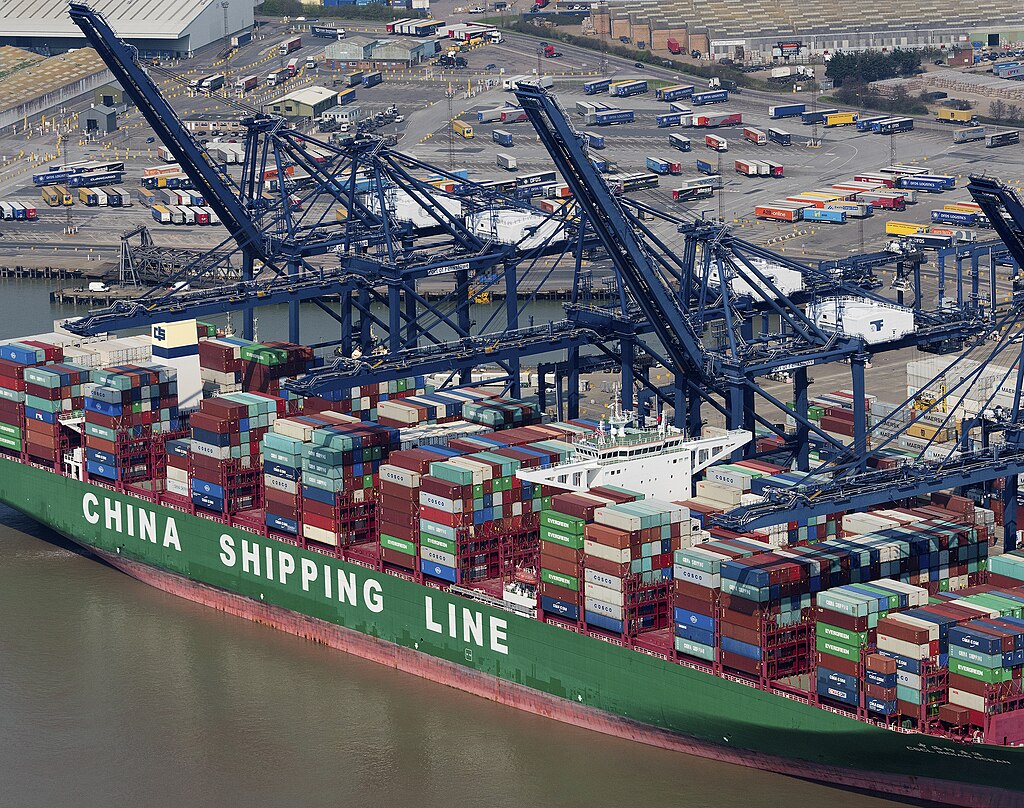President Donald Trump’s plan to revive U.S. shipbuilding by imposing hefty fees on China-built vessels is facing fierce backlash from the American maritime industry. Industry leaders argue that the proposed port fees—potentially exceeding $3 million per call—would hurt U.S. ship operators, exporters, consumers, and critical jobs.
The Trump administration says the fees will reduce China's dominance in global shipbuilding, which now accounts for over 50% of the market, up from under 5% in 1999. While supported by steel unions and some lawmakers, critics warn that the policy could backfire by crippling American carriers that rely on Chinese-built ships due to the lack of domestic alternatives. U.S. shipyards currently produce fewer than 10 vessels per year compared to China’s 1,000.
Executives, including Edward Gonzalez of Seaboard Marine and Kathy Metcalf of the Chamber of Shipping of America, warn that penalizing China-linked vessels would force U.S. cargo to shift to foreign carriers or reroute through Canada and Mexico—disrupting trade, spiking costs, and straining infrastructure. Smaller ports would suffer from reduced traffic while major ports could face overwhelming congestion.
U.S. exporters, particularly in agriculture and coal, are already experiencing booking issues due to policy uncertainty. The American Soybean Association and other trade groups caution that the fees could slash U.S. exports by nearly 12% and shrink GDP by 0.25%, with rising prices hitting consumers hard.
Though supported by over 60 Democratic lawmakers, industry insiders urge the U.S. Trade Representative to reconsider, warning the plan could trigger job losses and supply chain disruptions reminiscent of early COVID-19 chaos. Final decisions are pending further hearings this week.



 U.S. Sanctions on Russia Could Expand as Ukraine Peace Talks Continue, Says Treasury Secretary Bessent
U.S. Sanctions on Russia Could Expand as Ukraine Peace Talks Continue, Says Treasury Secretary Bessent  Gold and Silver Prices Slide as Dollar Strength and Easing Tensions Weigh on Metals
Gold and Silver Prices Slide as Dollar Strength and Easing Tensions Weigh on Metals  Norway Opens Corruption Probe Into Former PM and Nobel Committee Chair Thorbjoern Jagland Over Epstein Links
Norway Opens Corruption Probe Into Former PM and Nobel Committee Chair Thorbjoern Jagland Over Epstein Links  Silver Prices Plunge in Asian Trade as Dollar Strength Triggers Fresh Precious Metals Sell-Off
Silver Prices Plunge in Asian Trade as Dollar Strength Triggers Fresh Precious Metals Sell-Off  Oil Prices Slip as U.S.–Iran Talks Ease Supply Disruption Fears
Oil Prices Slip as U.S.–Iran Talks Ease Supply Disruption Fears  Missouri Judge Dismisses Lawsuit Challenging Starbucks’ Diversity and Inclusion Policies
Missouri Judge Dismisses Lawsuit Challenging Starbucks’ Diversity and Inclusion Policies  U.S. Stock Futures Slide as Tech Rout Deepens on Amazon Capex Shock
U.S. Stock Futures Slide as Tech Rout Deepens on Amazon Capex Shock  Dollar Steadies Ahead of ECB and BoE Decisions as Markets Turn Risk-Off
Dollar Steadies Ahead of ECB and BoE Decisions as Markets Turn Risk-Off  China Warns US Arms Sales to Taiwan Could Disrupt Trump’s Planned Visit
China Warns US Arms Sales to Taiwan Could Disrupt Trump’s Planned Visit  South Korea Assures U.S. on Trade Deal Commitments Amid Tariff Concerns
South Korea Assures U.S. on Trade Deal Commitments Amid Tariff Concerns  Nighttime Shelling Causes Serious Damage in Russia’s Belgorod Region Near Ukraine Border
Nighttime Shelling Causes Serious Damage in Russia’s Belgorod Region Near Ukraine Border  Australia’s December Trade Surplus Expands but Falls Short of Expectations
Australia’s December Trade Surplus Expands but Falls Short of Expectations  Trump Signs Executive Order Threatening 25% Tariffs on Countries Trading With Iran
Trump Signs Executive Order Threatening 25% Tariffs on Countries Trading With Iran  Trump Endorses Japan’s Sanae Takaichi Ahead of Crucial Election Amid Market and China Tensions
Trump Endorses Japan’s Sanae Takaichi Ahead of Crucial Election Amid Market and China Tensions  RBI Holds Repo Rate at 5.25% as India’s Growth Outlook Strengthens After U.S. Trade Deal
RBI Holds Repo Rate at 5.25% as India’s Growth Outlook Strengthens After U.S. Trade Deal  Ohio Man Indicted for Alleged Threat Against Vice President JD Vance, Faces Additional Federal Charges
Ohio Man Indicted for Alleged Threat Against Vice President JD Vance, Faces Additional Federal Charges  Japan Economy Poised for Q4 2025 Growth as Investment and Consumption Hold Firm
Japan Economy Poised for Q4 2025 Growth as Investment and Consumption Hold Firm 





























